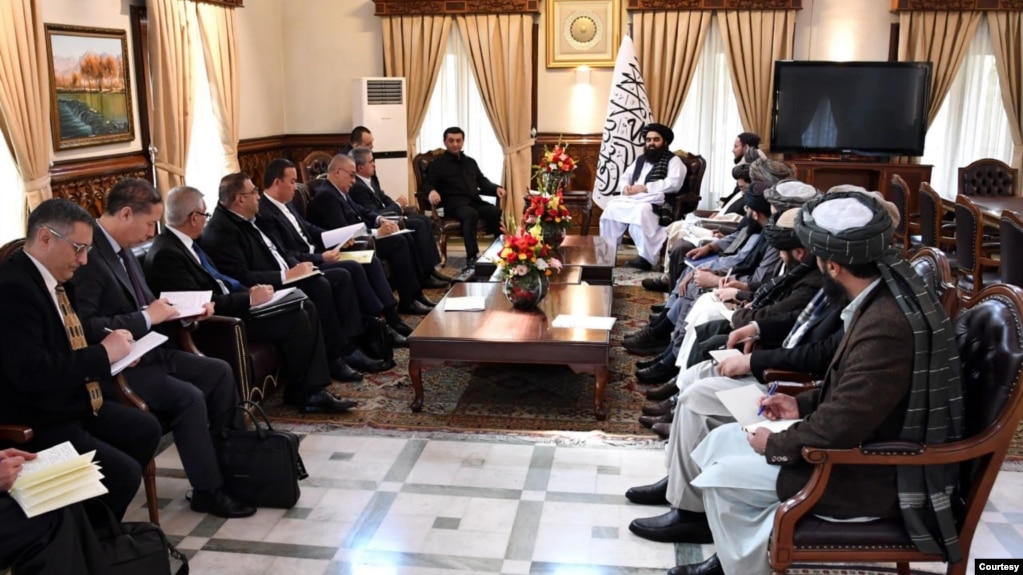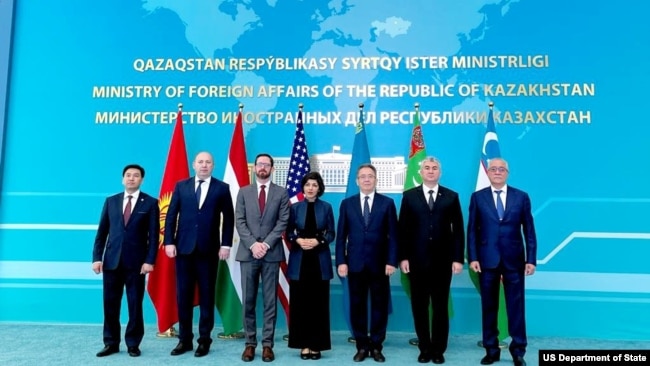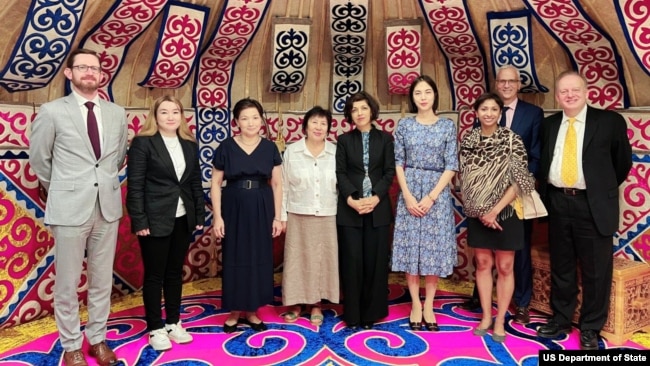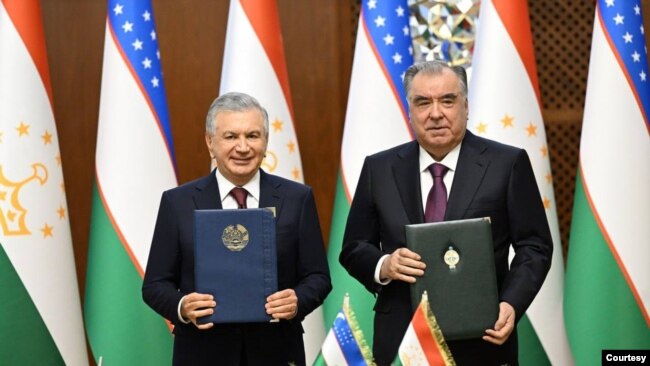Voice of America
April 24, 2024, 3:16 PM

Officials speaking with VOA suggest that more aid could be channeled into Afghanistan via Uzbekistan. Additionally, Washington could offer more military assistance to Central Asian states and tangibly support their regional connectivity initiatives.
While no country has formally announced diplomatic recognition of the Taliban government, Central Asian nations have been engaging with the Taliban based on mutual interests, such as security, trade, and water sharing. Uzbekistan, which has extensive political and economic ties with Kabul, has been urging the West and the larger international community not to isolate Afghanistan.
Nearly three years since the withdrawal of American forces, U.S. officials insist that they have not abandoned Afghanistan, pointing to ongoing efforts and consultations with Central Asian counterparts. However, they admit Washington’s priorities have shifted to other issues, such as Russia’s war on Ukraine.
“It will take the U.S. a decade or two to recover from the fact that we lost the war,” said David Sedney, a veteran diplomat and former deputy assistant secretary of defense for Afghanistan, Pakistan and Central Asia. “It took us 20 years before we were able to engage in Vietnam in a productive way,” he told VOA.
US Eyes Closer Ties to Central Asia After New York Summit
Scott Worden, who heads the Afghanistan and Central Asia programs at the U.S. Institute of Peace, thinks that Central Asian governments overestimate Washington’s leverage.
“There are a lot of issues in the world that have to be addressed simultaneously,” he noted in an interview with VOA. “They [the U.S.] are balancing the leverage that they have against issues that are manageable and maybe achievable versus ones like women’s rights, which I think the administration cares strongly about.”
“It’s just a really tough situation,” Worden added. “In my view, you should not condition humanitarian assistance. Any economic sanctions wind up hurting the Afghans that we want to support. It’s a difficult balance, and so I don’t think there is any obvious additional tool or leverage that could be deployed that they’re withholding.”
Some Western nations including the United States, however, have filtered humanitarian aid programs through partner organizations that circumvent Taliban officials and deliver aid directly to Afghan civilians.
According to USAID, the U.S. supplied nearly $81 million in Afghan humanitarian aid in fiscal year 2024 and has supplied total funding for Afghanistan of “more than $2 billion since August 2021 … including more than $1.5 billion in [USAID’s Bureau for Humanitarian Assistance] funding and nearly $550 million in [the State Department’s Bureau of Population, Refugees, and Migration] funding.”
“Provided through international partners on the ground,” says USAID, this assistance helps “meet the needs of the most vulnerable through food and cash support, nutrition, health care, protection for women and children, and agricultural inputs to support Afghans in meeting their immediate food needs.”
Uzbek Border Town Adjusts to the Taliban as Neighbors
Like Sedney, Worden suggests being realistic. “There is ample opportunity for the U.S. and other international partners to talk to the Taliban when they want to.”
“This is all part of a very difficult global conversation,” he said.
But for Frederick Starr, chairman of the Central Asia-Caucasus Institute, known for advocating closer ties with the region, Afghanistan is “utterly ignored right now.”
Starr emphasizes that this country is critical for regional integration and stability, two goals the U.S. has long vowed to support.
Sedney observes that “not many people want to talk about Afghanistan,” not just in Washington but in other Western capitals as well.
Speaking last week at the American Foreign Policy Council, these experts stressed that America’s two decades of involvement in Afghanistan left it with an obligation to go beyond the status quo.
Starr approves of the steps Kazakhstan, Turkmenistan and Uzbekistan have taken with Afghanistan, particularly regarding commerce, energy supply and water resources.
Other observers, however, warn about tensions between the Taliban and Tajikistan, which officially supports the National Resistance Front, an armed alliance of anti-Taliban forces that is loyal to the previous regime and carries out guerrilla attacks in Afghanistan. Dushanbe continues to host the previous government’s ambassador.
US Cast as Villain During Meeting of Afghan Neighbors
Worden identifies several key interests and objectives for Washington, most of which align with those of the region. The first and most important objective is counterterrorism, ensuring that Afghan territory is never again used to launch attacks on the U.S. or its allies.
Others include negotiations on American hostages; the evacuation of Afghans that the U.S. promised to help following its withdrawal; women’s rights and other human rights; humanitarian assistance; and economic development.
Perhaps the most abstract interest, according to Worden, “is trying to maintain an international diplomatic consensus on the broad conditions and expectations that we have for the Taliban, which include in the endgame a more inclusive society that is not a threat to itself and for its neighbors as well as these U.S. interests.”
“It’s remarkable that no country in the world has recognized the Taliban,” he said, adding, however, that he sees a divergence between Western-allied emphasis on human rights and women’s rights and the neighboring countries’ economic and security concerns.
In Worden’s view, the U.S. is pursuing a policy of “quiet engagement” on humanitarian assistance and counterterrorism. At the same time, there is a firm position of non-recognition and not wanting to legitimize the Taliban.
“Can this dualism sustain over time?” asked Worden, who also sees a cleavage developing, where countries in the region will over time increase engagement with those in power in Afghanistan to achieve their economic and security interests. “Not that they like the Taliban, but they feel like talking to them is better than not.”
Uzbekistan Seeks to Engage Taliban Without Alienating West
Regardless of who inhabits the White House next January, Worden doubts that U.S. attention toward Afghanistan will increase unless there is an “acute crisis.”
Republicans tend to “prefer coercion to engagement when you’re talking about regimes that we don’t have much in common with,” he said. “So yes, there is the wild card of potentially making a great deal, but I think the odds of support for armed opposition would increase.”
U.S.-based Afghan journalist Samy Mahdi, who runs Amu Television out of Virginia, points out that the Taliban enjoy close relations with America’s adversaries, such as Iran, Russia and China. He argues that U.S. assistance has brought about minimum results, and that the Taliban is as radical and dangerous as it was in the 1990s.
Mahdi recommends a full review of U.S. policy.
“More communication and transparency are needed on Afghanistan,” he said at the American Foreign Policy Council forum. “We don’t hear much from the U.S. administration about Afghanistan.”
 Afghanistan Peace Campaign
Afghanistan Peace Campaign




